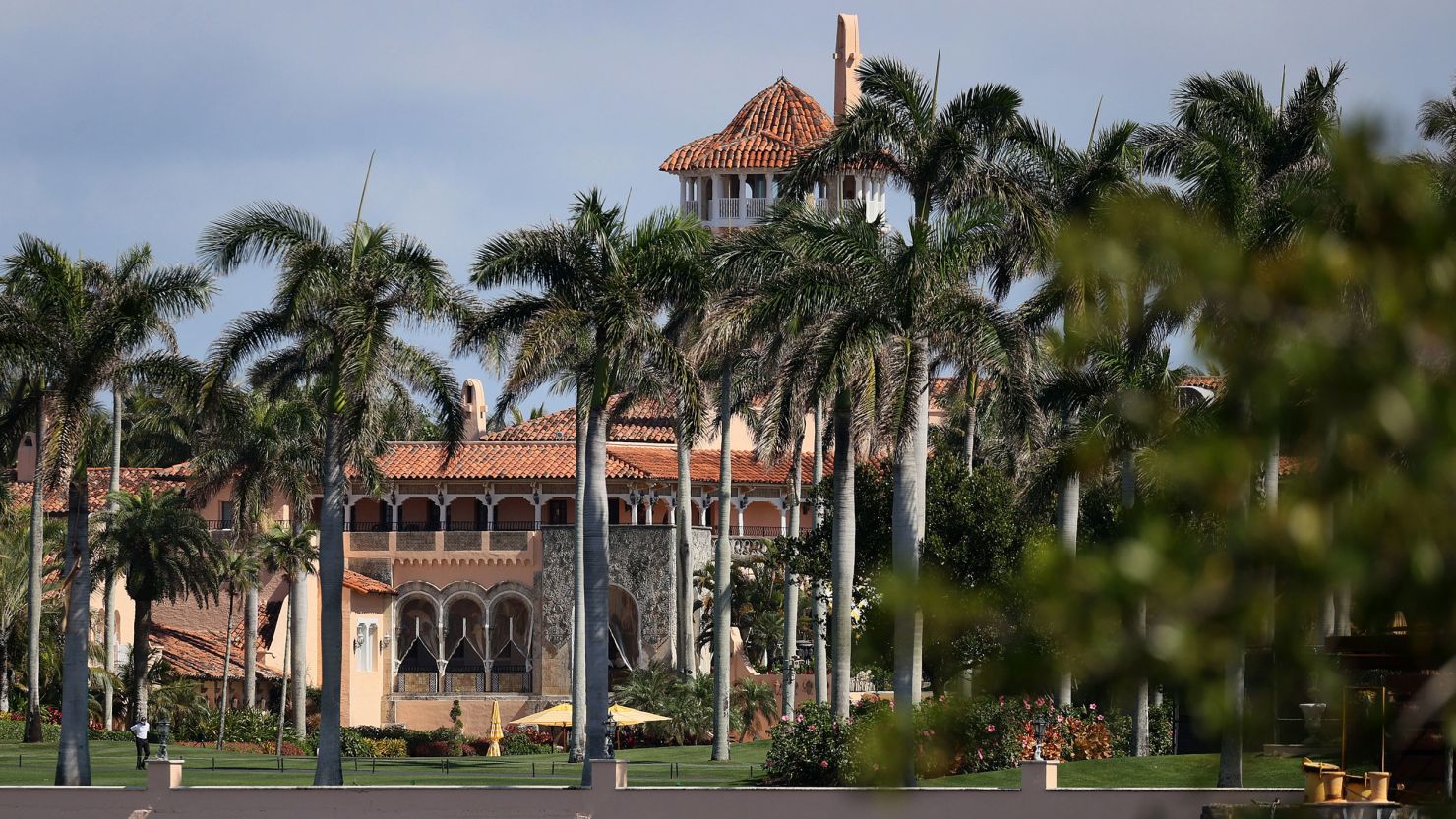Former President Donald Trump argued in a newly public court filing that a president gets to decide whether records from his White House are personal documents – and that he had decided that all the records he took to Mar-a-Lago were in fact his personal property.
The argument is Trump’s latest legal bid to hold off parts of the criminal investigation into sensitive records kept at his Florida resort and home after he left the White House.
The Justice Department responded by saying that Trump’s legal theory for when he can deem records from his White House as personal is wrong.
“Plaintiff may not designate records qualifying as ‘Presidential Records’ under the Presidential Record Act … as his ‘personal’ records simply by saying so,” the department said, adding that such a theory would “nullify” the purpose of the law.
The assertions came in dueling “global issues” briefs that Trump and DOJ filed last week under seal to lay out their big picture arguments about how special master Raymond Dearie, a senior judge in Brooklyn, should approach his review of the materials the FBI seized from Trump’s Florida home in August.
US District Judge Aileen Cannon – who appointed Dearie to conduct a third-party review of what documents should be withheld from investigators because of privilege issues – unsealed a redacted version of the briefs on Monday.
The Justice Department told the special master that prosecutors should be allowed to use nearly 2,800 documents in its criminal probe while the remaining privilege disputes are hashed out.
That would mean criminal investigators could get access to most of the documents taken from the former president’s Florida resort that are still in dispute, while privilege issues are resolved over one document Trump claims is covered by attorney-client privilege and more than 121 documents he says are shielded by executive privilege, according to the new DOJ filing.
Trump has sought to categorize “several hundred” seized records as his personal records, the Justice Department said. While attacking his logic for doing so, the department also argued that even if the records are personal, they should not be withheld from the federal criminal investigation into alleged mishandling of materials from Trump’s White House found at Mar-a-Lago.
The former president argued that if the federal government disagreed with how Trump has designated the records as personal, it would have to sue him.
“Plaintiff was authorized to – and did in fact – designate the seized materials as personal records while he served as President,” Trump’s legal team wrote. “President Trump was still serving his term in office when the documents at issue were packed, transported, and delivered to his residence in Palm Beach, Florida. Thus, when he made a designation decision, he was President of the United States; his decision to retain certain records as personal is entitled to deference, and the records in question are thus presumptively personal.”
The special master’s review of the disputed documents – which amount to roughly 22,000 pages – does not encompass looking at documents from Mar-a-Lago that were marked as classified. Those are being looked at by intelligence authorities and criminal prosecutors.
Sparring over executive privilege
In addition to its rebuke of what Trump considers to be personal records, the department also countered assertions from Trump that if Dearie rejects Trump’s argument that a document is a personal record, the former president could then assert executive privilege over the document. “The Special Master should not indulge this type of gamesmanship,” the department wrote.
The department also pushed again that Trump be required to declare under oath whether the government accurately described what it took from Mar-a-Lago.
This would put the former president on the spot to back up public, out-of-court statements suggesting the FBI planted evidence in the search. Trump’s lawyers have resisted requests that he authenticate the government’s description of what it seized from his resort.
In the new filing, the department pointed to the previous move by Cannon to block a requirement for such a declaration. She did so at the time based on the principle that Trump had not had a chance to review the seized materials, DOJ noted.
“Now that Plaintiff has reviewed the seized materials and claimed the overwhelming majority of them to be his personal records, considerations of fairness, integrity, and evenhandedness require Plaintiff to do what the government has done – namely, verify the property inventory or correct it if he believes it to be in error,” prosecutors said.



